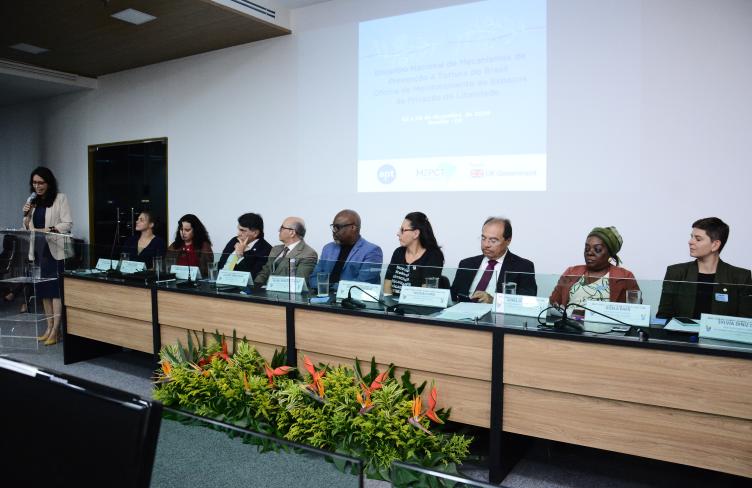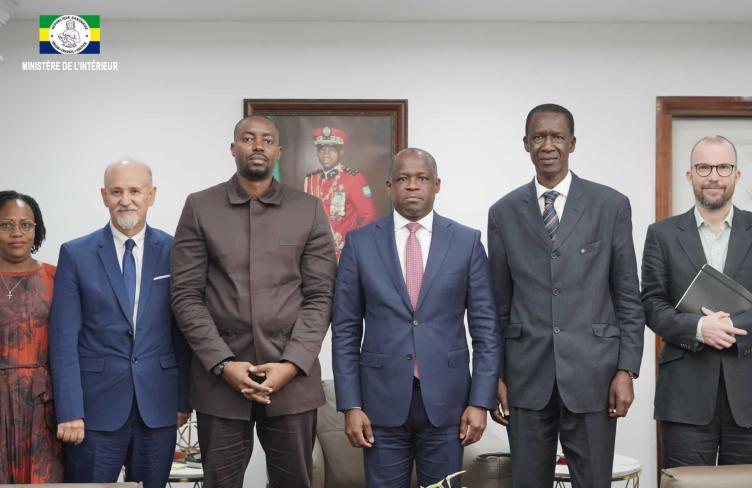
From 26 May to 01 June 2018, an APT delegation visited Madagascar to kick-off a three-year project on the implementation of basic procedurals safeguards to prevent torture during the first hours of deprivation of liberty. The project aims at supporting the police in effectively implementing three key safeguards – namely informing arrested persons on their rights and reason for detention in a language they understand; notifying a relative of the arrest; and keeping a register, in each place of detention, detailing information such as date, time and reason for detention for each person deprived of liberty. The launch of the project was also the opportunity to organise a national seminar on the Optional Protocol to the UN Convention against Torture (OPCAT) system and strengthen national actors’ knowledge on the mandate of a National Preventive Mechanism (NPM). After ratifying the OPCAT in September last year, Madagascar is close to establishing its NPM.
In practice, the launch of this three year-project project consisted in:
- The organisation of a national seminar on safeguards, which brought together around 30 police officers and five prosecutors and judges, and was a good opportunity for participants to discuss challenges and good practices in the implementation of the safeguards, as well as to reflect on the tools and measures that could help them to apply the law in an effective way.
- A visit to four police stations identified for piloting the first phase of the project, crucial for the APT to get a better sense of the realities on the ground and understand the day-to-day problems facing police officers, including in terms of implementing certain key safeguards.
- Meetings high-level authorities and other actors to assess the implementation of the above-mentioned safeguards, including with the Minister of Public Security and its Director General of Police; the Minister of Justice and its Director General of Judicial Reform; the Bar Association; and the International Committee of the Red Cross (ICRC). All the authorities met were not only supportive but also very enthusiastic about the project.
“I am fully available to collaborate with you for the successful implementation of the project,” said the Principal Commissioner of Police and Antananarivo’s Head of Police, Tsaramonina Ravony. “I look forward to seeing the benefits of this project in our pilot police stations, and to furthering the protection of persons deprived of liberty with all actors concerned by the prevention of torture in the country.”
The APT is now in possession of all the information necessary to provide adequate support through tailored measures and tools to be tested in the four pilot police stations before their extension to the whole country in the second phase of the project.
NPM Designation
The APT also took the opportunity of its visit to organise a national seminar on the OPCAT, which Madagascar ratified in September 2017. The seminar, which brought together about 25 people including representatives from Madagascar’s Ministries of Justice and Public Security, Police, National Human Rights Commission (NHRC) – Madagascar’s NHRI – civil society organisations (CSOs), as well as the ICRC, aimed to strengthen the participants’ knowledge of:
- The OPCAT preventive system and spirit;
- The mandate and powers of a n NPM;
- The advantages and challenges of having an NHRI designated as NPM, and
- The necessary dialogue and cooperation between an NPM and the authorities for effective prevention.
During the seminar, participants shared encouraging information on the NPM designation process in the country. At the time of the seminar on 31 May, a draft law designating Madagascar’s NHRC as NPM was under discussion before Parliament. Adopted shortly thereafter on 1 June 2018, it must now be signed by the President and promulgated to become public.
Participants to the OPCAT seminar, including APT's Advocacy and Legal Advisor, Anne Lardy (2nd from left), APT's Africa Programme Officer, Jean-Baptiste Niyizurugero (3rd from left) © ACAT


